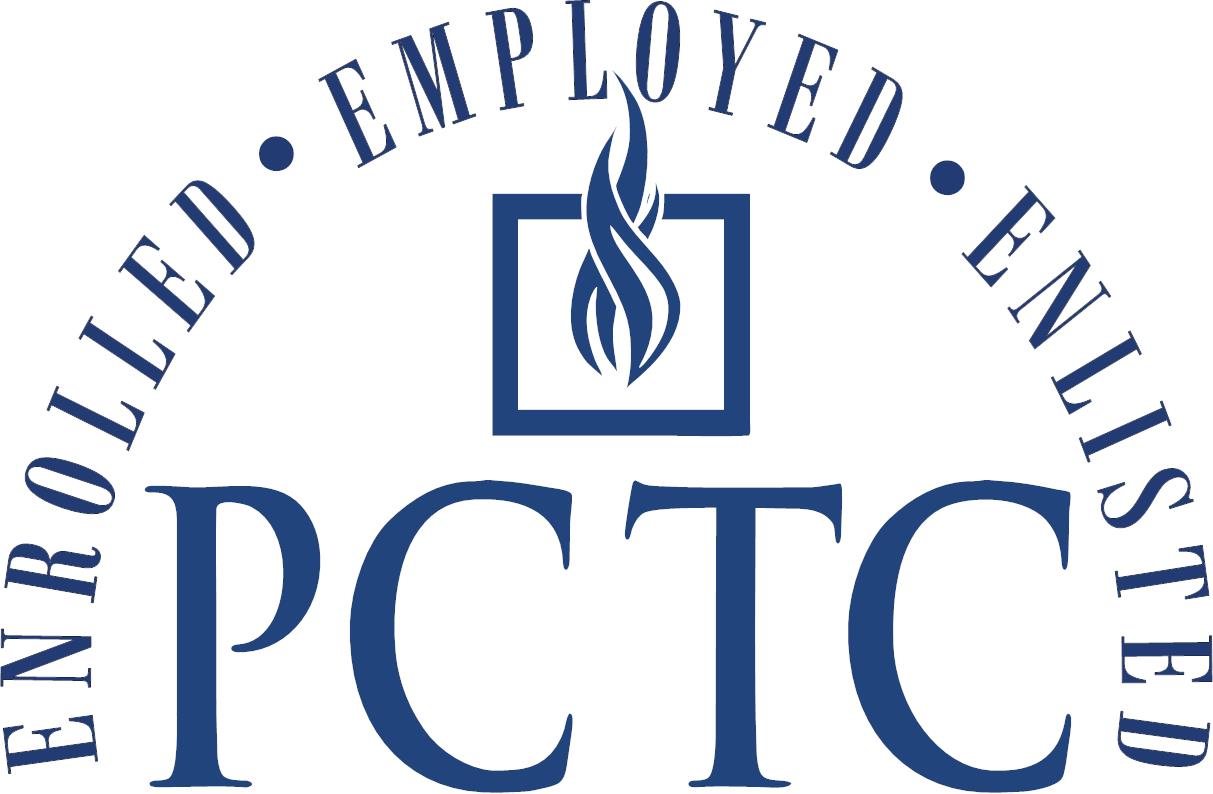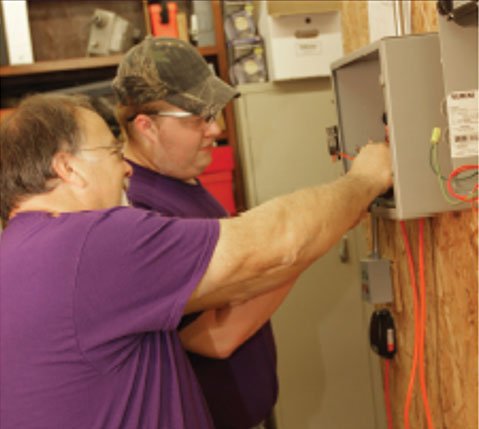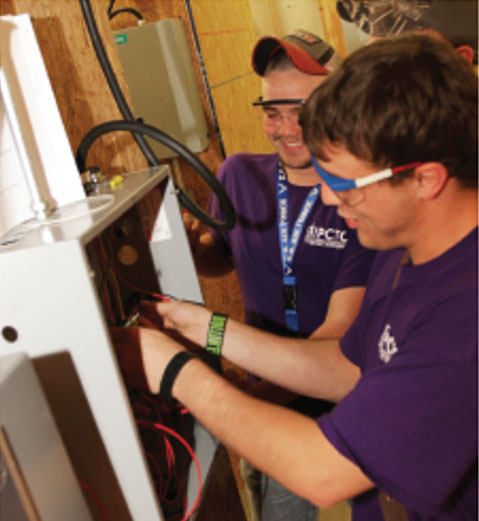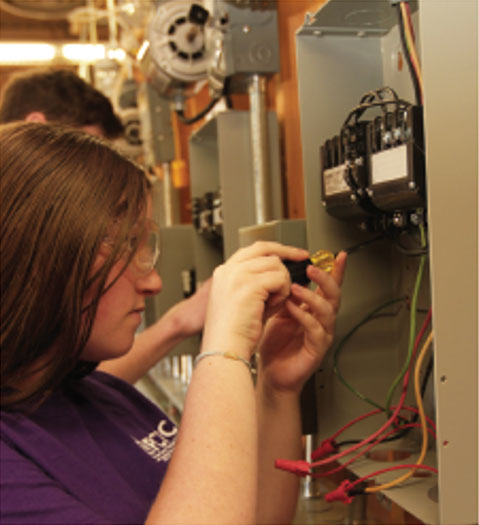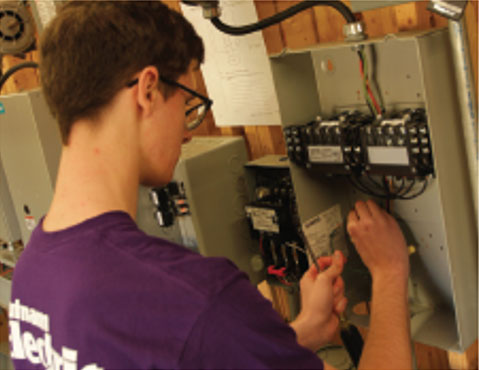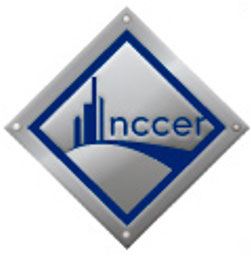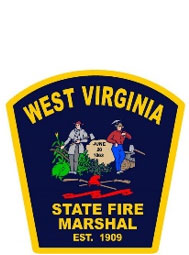ELECTRICAL TECHNICIAN
The electrical technician courses prepare students for tasks such as reading blueprints and technical diagrams to connecting wires, circuit breakers, outlets and various other components.
This program provides students with the knowledge and skills of adding, replacing and connecting electrical systems in a variety of conditions. At all times on the job, electricians are required to adhere to safety rules and guidelines. Those with careful eye for detail, good work habits, and great work judgement might consider becoming electricians.
WHAT ARE THE CLASSES ABOUT?
Learn to install, maintain, repair and replace electrical components
Instruction on electrical system maintenance, and can teach you what’s involved in setting up an electrical system
Learn different wiring methods, electrical theory, how to draw and read wiring diagrams
Working with your hands and mechanical equipment
Working carefully and safely
WHAT SKILLS WILL STUDENTS LEARN?
Electrical students learn to use basic hand tools, hand benders, hydraulic benders, pipe threaders, and power tools commonly used by electricians
Students also use computers to do research for various electrical projects throughout the year
Learn to draw, lay out and wire entire rooms, configure and size electrical service and circuits for residential homes, wire fire alarm systems, security systems, motor controllers, and transformers
Students will also perform several “hands-on” activities including selecting and installing various electrical devices, bending and installing conduit, wiring motor controls and green technologies. Academic work in class will include: locating and reading for information in the National Electrical Code, participating in local, state and national competitions through SkillsUSA.
WHAT CREDENTIALS ARE AVAILABLE?
NCCER – National Center for Construction Education and Research Core & Electrical Level 1
OSHA 10-Hour Construction Certificate
WV Electricians License - Journeyman
SNAP-ON 504 Meter Certification
WHAT JOBS/JOB TITLES ARE AVAILABLE TO THE STUDENTS AFTER GRADUATION?
Apprentice Electrician
Maintenance Electrician
Journeyman Electrician
Electrician Technician
Electrician helper
Industrial Electrician
Control Electrician
Cable Puller
Electrician
Inside Wireman
WHAT WORK SKILLS WILL BE NEEDED FOR THESE JOBS?
Mathematical
Ability to read technical material
Ability to lift 50 pounds
Ability to climb a 20-foot ladder
Valid Driver’s license
Strong communication and reading
Safety Oriented
Hand/Eye Coordination
Detail oriented
Logical thinker
WHAT SKILLS SHOULD A STUDENT HAVE TO BE SUCCESSFUL IN YOUR PROGRAM?
Students need to have good math, reading and communication skills and maintain excellent attendance.
Students will also need to be drug free.
PROGRAM REQUIREMENTS
Students must pass the NCCER Core Safety, the NCCER Level I, obtain the OSHA 10-Hour Construction Safety certification and maintain a “B” or better in each course to continue in the program.
For Adult General Admission Requirements, click here.
SIMULATED WORKPLACE REQUIREMENTS
This program participates in the Simulated Workplace environment. For details and requirements, click here
TECHNOLOGY REQUIREMENTS
Students will be provided with any technology instruction, devices and software required.
STUDENT ORGANIZATION
Students may enroll in SkillsUSA.
PROGRAM LENGTH
2 Academic Years (22 months) – 1080 clock hours (Adults may attend part-time only)
Consisting of eight (8), nine-week courses of 135 clock hours each
SCHEDULE OF COURSES
Course Frequency: Each course offered once each academic year
1ST YEAR SCHEDULE: MONDAY-FRIDAY 8:30AM – 11:00AM
1756E1-111 ELECTRICAL TRADES I
1757E1-112 ELECTRICAL TRADES II
1758E1-123 ELECTRICAL TRADES III
1769E1-124 Residential Wiring
2ND YEAR SCHEDULE: MONDAY – FRIDAY 12:30PM – 3:00PM
1766E1-211 Integrated Electrical Lab
1759E1-212 ELECTRICAL TRADES IV
1771E1-223 Rotating Devices & Control Circuitry
1765E1-224 Industrial & Commercial Wiring
ELIGIBILITY REQUIREMENTS FOR LICENSING
(As determined by the West Virginia State Fire Marshal and the West Virginia Department of Education)
Apprentice: (Exam consists of 20 multiple choice code questions taken from the first four chapters of the National Electric Code Book.)
Note: All licenses require completion of the required portions of the Application for West Virginia Electrical Examination, submission of the indicated application fees and passage of the licensing exam.
Must be 18 years of age.
JOURNEYMAN
Per Electrician’s Rule 4.2 from the West Virginia State Fire Marshal’s Office:
To apply for a “journeyman electrician’s license”, a person must:
(1) show at least 8,000 hours or at least four (4) years of experience as an apprentice electrician in performing electrical work under the direction or instruction of a master electrician; or
(2) must have completed a United States Department of Labor/Bureau of Apprenticeship and training registered electrical apprenticeship program; or
(3) have completed an electrical vocational education program of at least one thousand, eight hours (1080) in length approved by the West Virginia Board of Education which should include an one-the-job training/work hours module, successfully passed all final written practical testing required by the West Virginia Department of Education, and obtained an affidavit showing competency to sit for the journeyman electrician examination from the program instructor.
Per Policy 2520.13 of the West Virginia Department of Education
(1) attain an overall grade of “B” or better in the four required state-approved CTE Electrical Technician Program of Study required courses AND the four specialization courses used to meet the 1080 hours needed to sit for the Journeyman’s License as stated in the Electrician Licensing Rules from the West Virginia State Fire Marshal’s office; and
(2) attain a verified school attendance record of no more than six (6) days absent in a one-year, 1080 hour program or twelve (12) days absent in a two-year, 1080 hour program; and
(3) earn the OSHA-10 certification; and
(4) pass a minimum of two (2) documented drug screenings; and
(5) score at or above the Workforce Entry-Level cut score on the industry-recognized written AND performance audit. (The NOCTI Performance Test is the current standard.)
MASTER ELECTRICIAN
Must show at least 10,000 hours or five (5) years of actual, hands-on work electrical work experience. Such shall include a mixture of residential, commercial and industrial experience. Vocational training cannot be counted towards the required experience. All work experience shall consist of above ground structural wiring in accordance with the NEC.
SPECIALTY ELECTRICIAN
HVAC, Electric Sign, Single Family Dwelling, Elevator, Fire & Burglar Alarm (low voltage)
Must show at least 4,000 hours or two (2) years of actual, hands-on work electrical work experience in the specialty area that you will be testing for. One year may be obtained through an educational course.
COURSE DESCRIPTIONS
1756 ELECTRICAL TRADES I
This course introduces the student to the knowledge base and technical skills of the Electrical Trades industry. Electrical Trades I begin with the NCCER Core curriculum which is a prerequisite to all Level I completions. The students will complete modules in Basic Safety; Introduction to Construction Math; Introduction to Hand Tools; Introduction to Power Tools; Introduction to Construction Drawings; Basic Rigging; Basic Communication Skills; Basic Employability Skills; and Introduction to Materials Handling. Students will then begin developing skill sets related to the fundamentals of Electricity such as Orientation to the Electrical Trade; and Electrical Safety. Students utilize problem‐solving techniques and participate in hands‐on activities to develop an understanding of course concepts. Teachers should provide each student with real world learning opportunities and instruction. Students are encouraged to become active members of the student organization, WV SkillsUSA. All West Virginia teachers are responsible for classroom instruction that integrates learning skills, technology tools, and skill sets.
1757 ELECTRICAL TRADES II
Electrical Trades II will continue to build student skill sets in areas such as Introduction to Electrical Circuits; Electrical Theory; Introduction to the National Electrical Code ®; Device Boxes; Hand Bending; Raceways and Fittings; Conductors and Cables; Basic Electrical Construction Drawings; Residential Electrical Services; and Electrical Test Equipment. Students utilize problem‐solving techniques and participate in hands‐on activities to develop an understanding of course concepts. Teachers should provide each student with real world learning opportunities and instruction. Students are encouraged to become active members of the student organization, WV SkillsUSA. All West Virginia teachers are responsible for classroom instruction that integrates learning skills, technology tools, and skill sets.
1758 ELECTRICAL TRADES III
Electrical Trades III will continue to build student skill sets in areas of Alternating Current; Motors: Theory and Application; Electric Lighting; and Conduit Bending. Students utilize problem‐solving techniques and participate in hands‐on activities to develop an understanding of course concepts. Teachers should provide each student with real world learning opportunities and instruction. Students are encouraged to become active members of the student organization, WV SkillsUSA. All West Virginia teachers are responsible for classroom instruction that integrates learning skills, technology tools, and skill sets.
1769 RESIDENTIAL WIRING
This course introduces the student to the knowledge base and technical skills for Residential Wiring. Areas of study include wiring data, service entrance equipment, luminary and receptacle outlets, protective devices, appliance and special circuits and low‐voltage systems. Emphasis will be placed on career exploration, job seeking skills and personal and professional ethics. Safety instruction is integrated into all activities. Students will utilize problem‐solving techniques and participate in laboratory activities to develop an understanding of course concepts.
1766 INTEGRATED ELECTRICAL LAB
This course introduces the student to the knowledge base and technical skills for concepts in the Integrated Electrical Lab. Areas of study include electrical installation project, rough‐in procedure, test and check circuits and termination and trim‐out. Emphasis will be placed on career exploration, job seeking skills and personal and professional ethics. Safety instruction is integrated into all activities. Students will utilize problem‐solving techniques and participate in laboratory activities to develop an understanding of course concepts, and teachers should provide each student with real world learning opportunities and instruction related to course concepts.
1759 ELECTRICAL TRADES IV
Electrical Trades IV will continue to build student skill sets in areas of Pull and Junction Boxes; Conductor Installations; Cable Tray; Conductor Terminations and Splices; Grounding and Bonding; Circuit Breakers and Fuses; and Control Systems and Fundamental Concepts. Students utilize problem‐solving techniques and participate in hands‐on activities to develop an understanding of course concepts. Teachers should provide each student with real world learning opportunities and instruction. Students are encouraged to become active members of the student organization, WV SkillsUSA. All West Virginia teachers are responsible for classroom instruction that integrates learning skills, technology tools, and skill sets.
1765 INDUSTRIAL AND COMMERCIAL WIRING
This course introduces the student to the knowledge base and technical skills for Industrial and Commercial Wiring. Areas of study include conduit and raceways and commercial load calculations and configurations. Emphasis will be placed on career exploration, job seeking skills and personal and professional ethics. Safety instruction is integrated into all activities. Students will utilize problem‐solving techniques and participate in laboratory activities to develop an understanding of course concepts and teachers should provide each student with real world learning opportunities and instruction related to course concepts.
1771 ROTATING DEVICES AND CONTROL CIRCUITRY
This course introduces the student to the knowledge base and technical skills for concepts in the Rotating Devices and Control Circuitry. Areas of study include control circuitry and motor controls. Emphasis will be placed on career exploration, job seeking skills, and personal and professional ethics. Safety instruction is integrated into all activities. Students will utilize problem‐solving techniques and participate in laboratory activities to develop an understanding of course concepts, and teachers should provide each student with real world learning opportunities and instruction related to course concepts.
